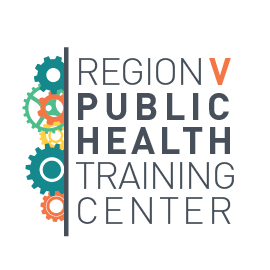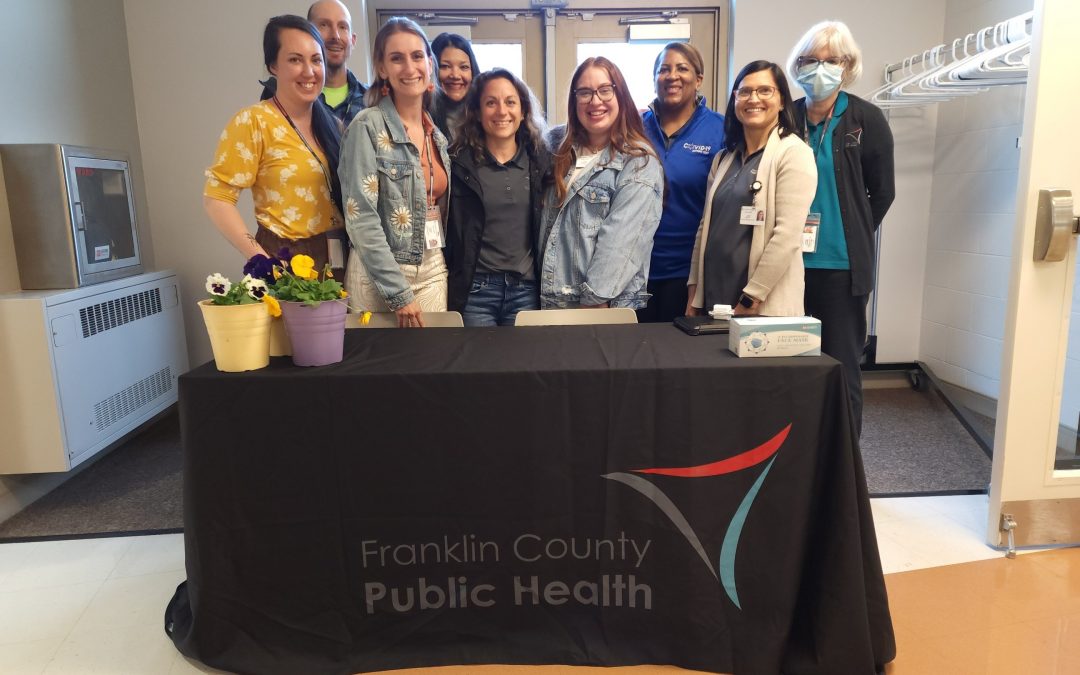This post comes from the RVPHTC’s partners at Franklin County Public Health in Ohio.
By Regina Prince, MSW, LSW, Community Health Action Team (CHAT) Coordinator
Photo Credit: Franklin County Public Health
Working in public health implies directly working with the public.
But so much of our work happens behind the scenes.
Because of this, public health professionals need to have a particular awareness when creating events and programs to serve the broader community. The best strategy is to apply a cultural humility lens to the work we do, which allows us to have a greater impact on the communities we serve. (I’ll share more on what is meant by “cultural humility” shortly.)
My coworker Angela Taah, Active Living Coordinator with Franklin County Public Health, planned our Spring into Activity event, where we focused on serving the Hispanic/Latino and Somali communities of West Franklin County, Ohio. The reason for choosing this area was we have an established Community Health Action Team (CHAT) that provides resources and fresh produce year-round.
The goal of the event was to encourage physical activity and heart health. We invited organizations that either directly focus on heart health, or organizations that provided resources that indirectly affect one’s heart. We intentionally invited a variety of organizations, including parks and recreation, childcare agencies, mental health experts, insurance companies, healthy food access groups and more, to address this issue with an interdisciplinary approach.
While each organization focused on a specific resource to encourage physical activity for all ages, as a whole, the event focused on improving a person’s entire wellbeing.
However, there’s an important part of this planning I want to focus on, and I encourage my fellow public health peers to do this: take personal assessments throughout the entire process from planning to execution and understand your role working in and with communities.
To do this, we took a cultural humility approach.
Some professionals are aware of cultural competence, where one becomes the “expert” of a particular group of people and the information is typically gathered from an outside, collegiate level. It’s also an inflexible understanding; once one has learned all they need to understand about a group, there is no need for new information.
Cultural humility, on the other hand, takes it a step further and requires a lifelong commitment from a person to examine themselves and the role they play for other communities, while at the same time learning about other cultures from individuals’ and groups’ direct views and experiences.
Rather than being outside experts of a culture like cultural competence suggests, it’s the understanding that people are experts of their own culture. Their experiences, knowledge, practices, and norms are valid and accurate.
Taking this approach when planning requires us to examine ourselves by continuously checking our biases, assumptions, and privileges.
As a white woman and a white-presenting Native American woman, my coworker and I had multiple conversations about if our planning process, our goals, and if the way we show up were appropriate to the communities. As professionals who can impact whole communities, it’s very important to do a personal assessment and to focus on cultural humility during the planning process.
We practiced cultural humility by understanding that Angela and myself are not providing direct service work, so we made sure to connect with people and organizations that do. We asked for thoughts and suggestions on what resources are needed at our event and what challenges community members face with physical activity and heart health, and any other points of cultural significance we should be aware of.
In addition, we also worked with external partners and internal staff who have an interest in health equity, diversity and inclusion.
My hope for you and the rest of our peers is to practice self-examination even when it’s uncomfortable. Though some of us may feel we can separate our personal self from our professional self, unfortunately that isn’t the case, and we can unintentionally do harm when we are not self-examining.
As professionals, we must think about how we show up in communities that have different identities from our own, whether that’s race, socioeconomic, gender and sexuality, abilities and neurodivergence, and more.
The key is to always recognize ourselves as a guest and as a constant learner of cultural humility rather than the expert those we serve.
Interested in learning more? Check out these trainings from the RVPHTC:

